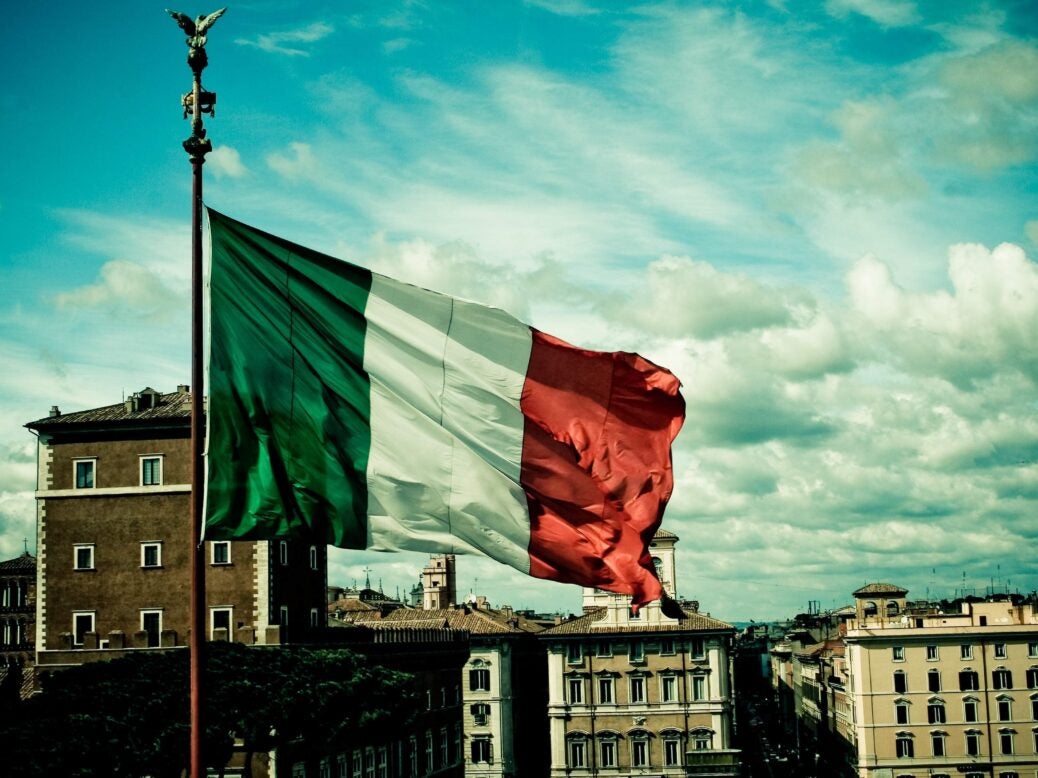
As Italy slides back into recession, David Dawkins taps the wealth management world for insight into the eurozone’s fragility
Are eurozone recessions still newsworthy? Once upon a time, news that a top economy had shrunk into technical recession might have made headlines. But a recession is big news no more, as the FT broke Italy’s return to the red this week with a paltry four paragraphs (online). There were no fancy graphics, no quotes, no reaction or analysis – a mere statement of fact. We were told as the death bell tolled, ‘Italian gross domestic product had contracted by 0.2 per cent in the last three months of 2018. The contraction was worse than economists had expected.’

A slow news day perhaps? After all, Rome’s new populist government has spent the year dancing in circles around a greying, static and increasingly unimpressed Brussels over its budget plans. And as any Greek might tell you, dancing with Brussels comes at a cost. With Greece finally out of fiscal detention, Italy now finds itself on the naughty step, when it comes to the eurozone’s plight. However, seemingly Italy is not where the story stops, but where begins anew, and wealth managers are increasingly concerned as a slew of negative data continue to arrive on an almost daily basis.
For Richard Stammers, chief investment strategist at KW Wealth, Italy’s slide back into recession highlights the fact that it remains the eurozone’s ‘Achilles heel’. He tells Spear’s, ‘[Italy] suffers from a nasty combination of low productivity, excessive debt, a very fragile banking system and populist government. With the economy now back in recession and the ECB no longer buying its bonds, the risk is rising once again that Italy could trigger a new eurozone crisis – and sooner rather than later.’
For Stammers, Germany, France and Italy have all seen a sharp slowdown in growth over the last year with Italy falling back into outright recession, Germany narrowly escaping that fate and France barely remaining in positive territory. They have both, he adds, been hit by a ‘double whammy of homegrown problems and the slowing in the broader global economy.’
With all eyes on Trump and Brexit, Stammers says the drastic change in sentiment comes after 12 months where investors were ‘lulled into a false sense of security by the unexpectedly strong growth in the eurozone in 2017 and forgot about the long-standing structural problems facing the area.’ He adds: ‘The biggest disappointment has probably been Germany which has been a comparative pillar of strength in recent years but is now holding up no better than the perennial laggards – namely France and Italy.’
Perhaps most worryingly, the extent of the slowdown in the eurozone has caught both investors and the ECB by surprise. Investors have been waiting for business confidence to stabilise for months now, but the reality has been a continuation of the steady decline from the highs touched in late 2017. For Stammers, there is a risk that the slowdown has caught the ECB on the hop with the recent ending of QE looking increasingly ill-timed.

Roger Jones, head of equities at London and Capital, tells Spear’s that the eurozone is a challenging area for wealth managers as cash offers negative yields and fixed income has extremely low yields. He adds, ‘This leaves only equities, from a mainstream asset class, and although valuations aren’t expensive, risks are higher.’ On the all-important question of what his clients are saying he adds, ‘they can see value in EU equities but maybe aren’t fully aware of the associated risk. Others are pessimistic on the region, stating the political concerns, low growth and maturity.’
Looking specifically over at Germany and France, Jones tells Spear’s that as Macron’s popularity has collapsed so too has his ability to finish the job he started of modernising and reforming both France and the eurozone. He adds that while Germany’s manufacturing slowdown is not country specific (the slowdown is also apparent in Japan, China, Korea) the ‘greatest risk in Germany is political and what happens after Merkel and the implications of mass immigration’.
Although the sentiment has yet to really affect positioning, Will Hobbs chief investment officer at Barclays Smart Investor, tells Spear’s that Barclays has just removed their equity overweight position in continental Europe in, as he describes, ‘deference to both the bounce in stocks seen this year and the slight deterioration in prospects outlined above.’ He adds that the ‘surge in activity and investment enjoyed by continental Europe from the middle of 2016 up to the end of the 2017 looks increasingly distant. While many of the factors that have more recently dented growth, from the retooling of the region’s car manufacturers following a change to emissions testing to abnormally low levels of the Rhine, look transitory, there can be little doubt that the outlook has weakened.’
For Boaz Yaari CEO of Sharegain, a securities-lending fintech firm, this is all merely ‘a regression to the mean’. He concludes: ‘For the past eight years, high returns were relatively easy to come by as the Quantitative Easing paradigm inflated every asset bubble to previously unseen heights. However, the era of QE is now over, and the resultant higher volatility and lower returns are making it increasingly difficult for asset managers to beat their respective benchmarks.’
With no easy stocks to bonds flip for wealth managers in 2019, the eurozone is set to pose a real question and separate the best from the rest.
MAIN PICTURE @Dave Kellam
More from this author
Switzerland: Stuck in the middle with EU.
Lloyd Dorfman on UHNWs: ‘You don’t see a huge number giving’







